

2U 19” Rack mount steel chassis, 450mm / 17.5” deep, 10kg / 22lbs approx weight
Internal FPGA 48KHz / 96KHz selectable, CPU, SSD, MADI or Dante 32×32 (32-Track); 64×64 (64-Track); OPTIONAL AES or Analogue 16×16 I/O modules
Forced air-cooled, low fan noise, OPTIONAL extra redundant fan
EMC shielded to conform to CE / UKCA interference emission and susceptibility requirements
OPTIONAL S-Version licence for PanSpace and TimeLine spatial rendering, showcontrol and tracking
OPTIONAL extra redundant PSU with additional IEC connector
OPTIONAL TiMax Portal bespoke touchscreens, custom GUI design service
STANDARD: Dante64: 64-in & 64-out, 48KHz interface module
Or
OPTIONAL: Dante64X: 64-in & 64-out, 96KHz / 48KHz interface module
Or
STANDARD: MADI64: 64-in & 64-out 48KHz / 32-in & 32-out 96KHz interface module on BNC and Optical, plus BNC Word Clock in/out
OPTIONAL AIO Analogue I/O card: 16-in & 16-out line-level in groups of 8 balanced signals on female DB25’s (Yamaha analogue pinout)
OPTIONAL MIO AES Digital MIO I/O card: 16-in & 16-out AES3 on separate DB25’s plus 16 analogue outs on two DB25’s. (Yamaha analogue pinout for both Analogue and AES). Sync selectable from internal 48KHz or 96KHz clocks, external Word Clock source via BNC, or selected AES3 input(s). Input and output SRC’s allow multiple sample-rates across different AES inputs and outputs
Headroom: +22dBu; Dynamic Range:114dB; THD+Noise: <0.002%, 20-20KHz; Fixed latency: <2ms
Two MIDI in/out DIN socket pairs, MIDI Prog / Note / MTC on both; also on Port1-In: MIDI Controllers can control Group faders 1-32; also on Port2-In: MIDI Controllers can control PanSpace Zone input object changes
RJ45 Ethernet (UDP) for PC/Mac control and XML/UDP remotes or showcontrollers. Up to four client computers, auto-config plug ‘n play default with DHCP, static IP and forced IP modes
Power Supply: 130W universal voltage 80-265VAC at 50/60Hz. OPTIONAL Dual redundant Inlet on fused IEC connector(s) Conforms to European LVD, UL, CSA, Nemco safety requirements, filtered to conform to CE requirements. Conforms to UKCA requirements
Routing/level/delay-matrix FPGA spatial audio processor core in configurations 32×32 or 64×64. Field upgradeable from 32 to 64 with license key
8-band parametric EQ on inputs, 8-band parametric EQ on outputs, linkable
32 assignable and nestable input and output DCA Group level controls, also on front panel LCD
Input Source Submixer for Analogue (or AES) / Playback Track / Network on each input channel
Live cross-fadeable Cue Snapshots between Submix sources, I/O levels, level/delay matrix routings. Also EQ without crossfade
Cue Snapshots assignable to selectable individual or groups of I/O channels and parameters
Dynamic delay-matrix spatialisation controllable by PanSpace, TiMaxTrackerD4 and external OSC
Advanced holistic FPGA smooth delay-panning algorithms for ultimate transparency
Image Definitions, EQ’s, Groups, Channel Labels, System Preset exportable between shows
Multi-channel random-access 16-bit/48KHz audio playback 32- or 64-track on 250Gb(min) SSD
Multiple TiMax units accessible from up to four Mac or PC control software clients
256 GPIO input trigger ports matrixed on DB25
OSC input control of PC/Mac software: levels, mutes, groups, cues, Panspace spatialisation, 3D stagetracking control
Front panel Menu: I/O Meters/Solo/Mute, Group Levels/Solo/Mute, Show select, Cue select, Utility, IP. Password protected
AES Input SRC’s allow different 44.1 / 48 / 96KHz incoming sample rates on any AES3 input pair
AES Output SRC’s allow different 48 / 96KHz sample rates and clock source on any AES3 output pair
SoundHub-S licence:
PanSpace adaptive auto-rendering of Image Definition localisation and spatialisation objects. Embedded TiMax TrackerD4 functionality, per-channel tracking Enable/Disable within Cues.
Integrated PanSpace and Time Line automated immersive spatial rendering on multiple SubSpace layers, scheduling and timing of input object panning across level/delay Image Definition objects.
TimeLine comprehensive audio playback editing, mix automation, advanced audio showcontrol, Cue input Triggers (FollowOn, MIDI/MTC, Show Clock, OSC) and output Events (MIDI/MTC, UDP, ShowClock) programming. Timing and scheduling of PanSpace programmed trajectories.
Elements of TiMax processes are mentioned in our US Patent
Multi-client Mac and PC workflow
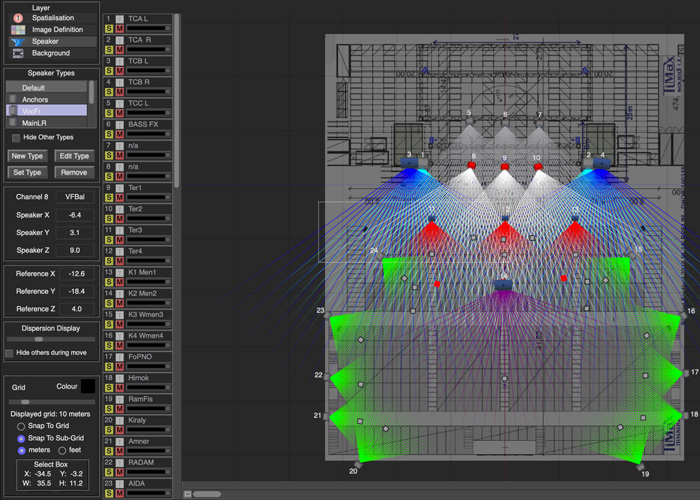
TiMax PanSpace spatially maps a venue in 3D with auto-rendered virtual Image Definitions; multiple PanSpace layers let you plot and edit spatial positions and movements of voices, music atmospheres, soundscapes and effects
The object-based workflow is child’s play. The holistic FPGA spatial processing behind it uniquely morphs dynamic delay-matrix parameters to ensure full immersion and localisation for the whole audience.
Integrates with TiMax TrackerD4 stagetracking
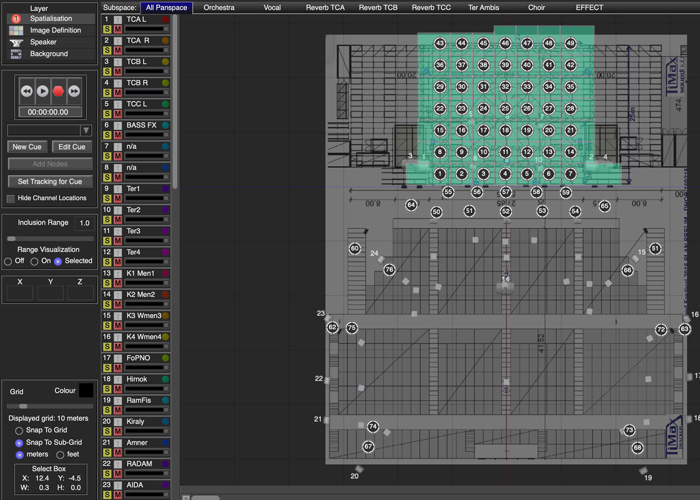
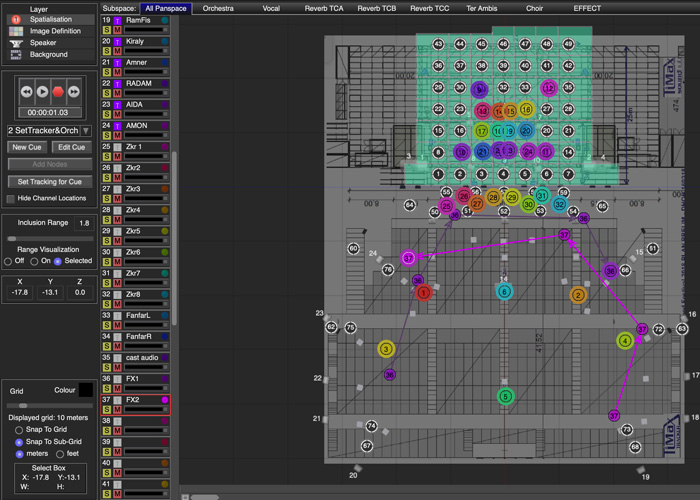
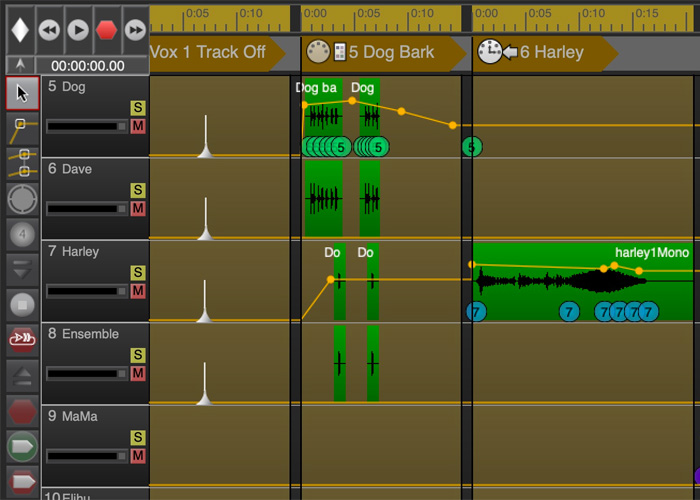
TiMax TimeLine uniquely integrates with PanSpace to schedule and manage timings for your immersive spatialisation and pan Cues, with intuitive DAW-style visual workflows. Spatialisation and mix automation work both with external audio or with the built-in 32- and 64-track playback, which also features sound-file offset, editing, and looping.
TimeLine also assigns incoming Cue triggers and sends synchronised showcontrol events, including MIDI, MTC, Follow-On, XML/UDP, DateTime
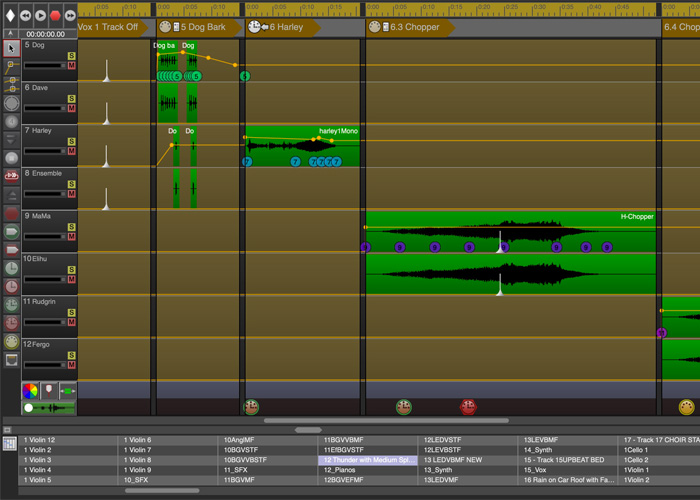
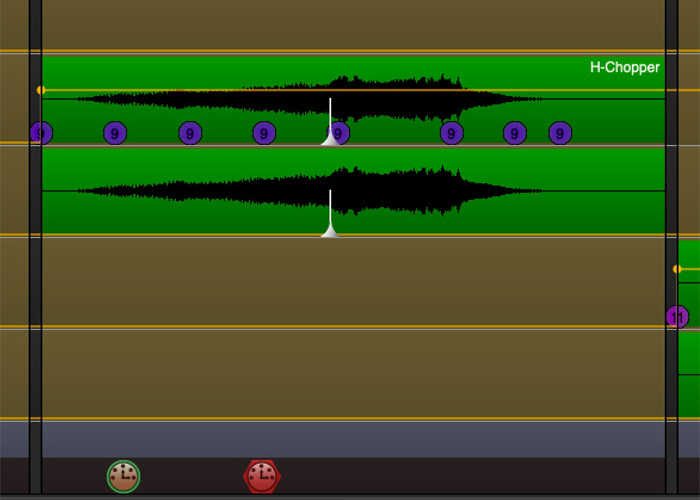
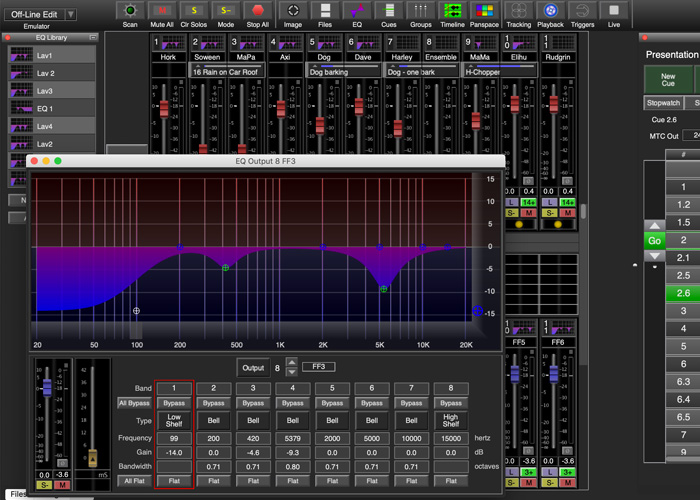
TiMax Mixer control centre gives you complete input, output and matrix processing control and visibility, with faders, matrix, meters, EQ, Link, Solo, Mute and nested DCA Groups for multiple source and system zone control
The Mixer also hosts the Cue List to manage spatialisation and playback events, plus live system and Cue parameter snapshots. It also handles Show File and Archive open/save, show data library export/import and Utilities
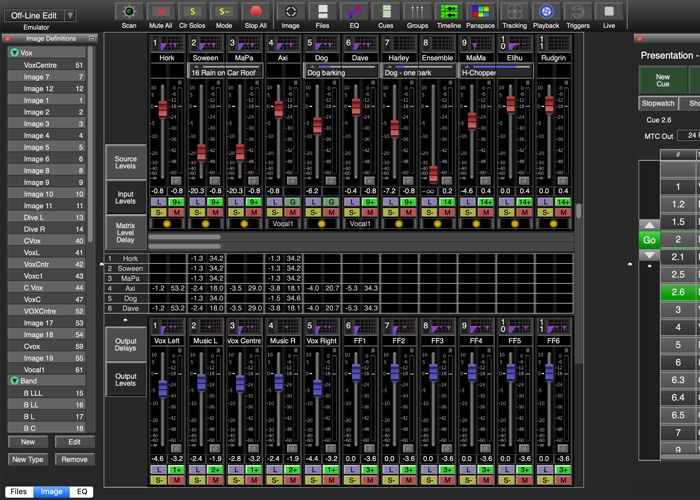
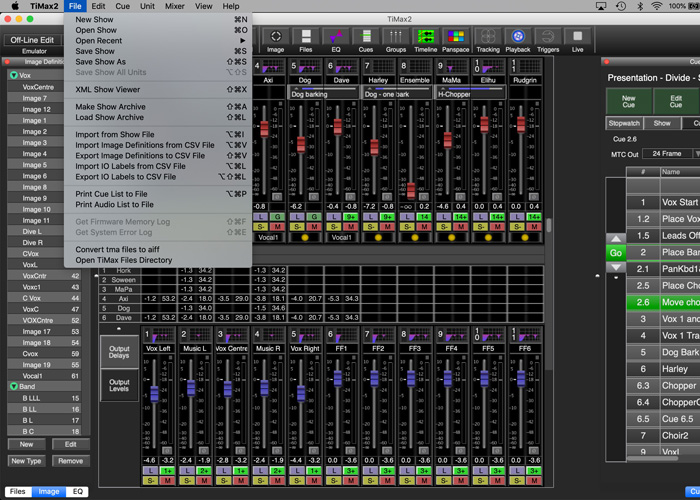
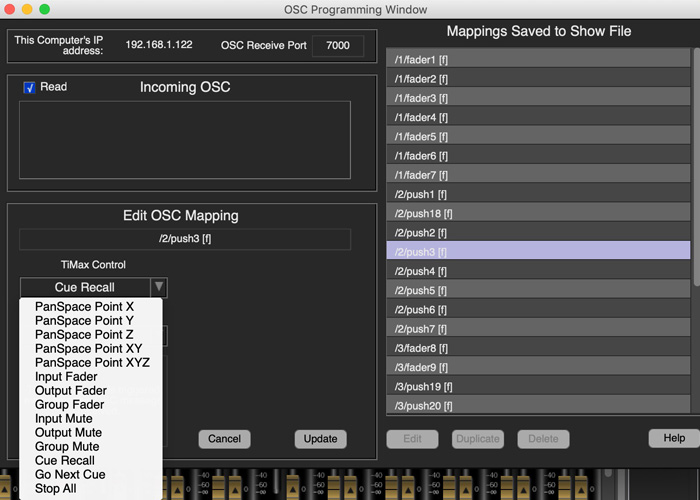
TiMax OSC window allows simplified remote control of input and output levels, Cues, mutes, DCA groups and 2D or 3D spatialisation. Makes it simple to connect TiMax to QLab and other showcontrol systems
TouchOSC offers an inexpensive and simple third-party option for touchscreen tablet control, with XY panners scaled to spatialise across defined areas of PanSpace
OSC is also how TiMax TrackerD4 stagetracking drives live TiMax SoundHub 3D vocal localisation
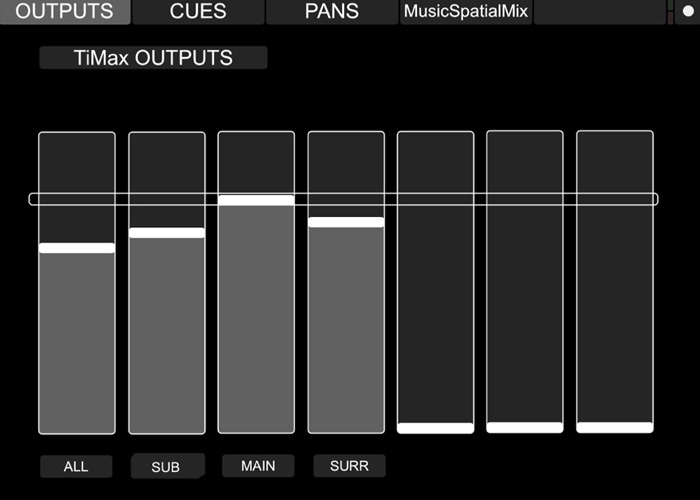
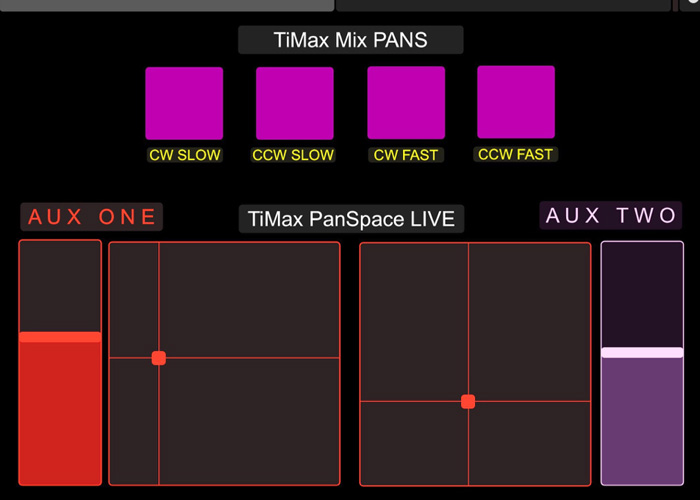
The combination of a versatile object-based spatial audio platform, integrated showcontrol and audio playback makes the award-winning TiMax SoundHub truly a show-in-a-box solution, with unparalleled functionality for a single self-contained unit. Individual or multiple TiMax units will sit and run shows or immersive installations without any computers attached, day after day and even automatically after powering off overnight and back on next day.
TiMax employs unique delay-matrix Image Definitions which map a stage or space with multiple spatial reference points, then holistic delay-morphing alogorithms interpolate seamlessly between them for static or moving input objects. TiMax calculates these Image Definition objects in an instant, applying user-adjustable adaptive level-shading and over-delay parameters onto multiple speaker channels to optimise the spatial rendering. Image Definitions can also be manually fine-tuned to taste, and the intuitive task-based Mac and PC software makes for a rapid and straightforward workflow.
This means TiMax automatically tailors immersive spatialisation to the relative positions of stage, loudspeakers and audience. And it does this equally well for any size and shape of stage or audience, employing untypically minimal and flexible speaker system configurations from virtually any brand or type. All while giving you full visibility and agency over every spatial audio parameter, to easily and quickly meet extreme sound design challenges or particularly creative spatial immersion demands.
The benefits and impact of TiMax’s hybrid delay and level spatialisation are incomparable to level-panning, which largely spreads or moves mix elements across a number of speaker channels. TiMax strategic control of Haas-effect Precedence in multiple dimensions creates a genuine spatial mix which localises directly onto performer voices, instruments or other sources, enhancing intelligibility and providing authentic sonic panoramas for both real acoustic sources or off-stage multichannel live or playback content.
If your spatial desires are more about an enhanced “cinematic” experience, or seductively enveloping 3D soundfield immersion, TiMax image definition objects will also deliver both across an entire space without any sweet-spot. Audiences, visitors, delegates, customers, congregations – all only hear the sound, not the system. And TiMax achieves this even for the trickiest, largest, or strangest of venues and productions, as well as excelling in mainstream performance, presentation and experience spaces.
Each TiMax SoundHub spatial audio processor incorporates a scaleable, object-based, dynamic delay-matrix and proprietary FPGA dsp engine to manage multiple sources and multiple zones in live performance, presentation and experiential installations, ranging from theatre, opera, touring, corporates, cruise ships and faith venues through to museums, experiences, attractions, theme parks, retail and nightclubs.
The compact 2U TiMax SoundHub chassis comes licensed in 32×32 or 64×64 standard configurations with Dante or MADI I/O. Optional on-board premium quality analogue or SRC AES3 I/O is available in slabs of 16 inputs and 16 outputs. You can also specify reassuring dual failsafe PSU’s and fans.
Comprehensive functionality includes a 3-source submixer per input channel, input and output parametric EQ for source sweetening and room tuning, Image Definition and EQ libraries you can transfer between shows, 32 nest-able DCA groups for flexible source and zone management, showcontrol Cue List including per-channel snapshots for source/fader/EQ/routing, TimeLine with real-time mix automation, built-in editable and loop-able 32- or 64-track audio playback, plus a massive range of uniquely embedded showcontrol hooks.
Having all this in one integrated package avoids extra cost and logistics involved in interfacing and synchronising together with external third-party devices. However with its comprehensive Cue List and on-board ports and protocols like Dante, MADI, MIDI, MTC, OSC, UDP/XML and GPIO, TiMax is also quick and easy to hook up to the likes of QLab, Ableton, Medialon, TouchOSC, AMX, Crestron, QSys etc, and most mixing consoles or other showcontrol and performer tracking systems, including TiMax TrackerD4 precision stagetracking.
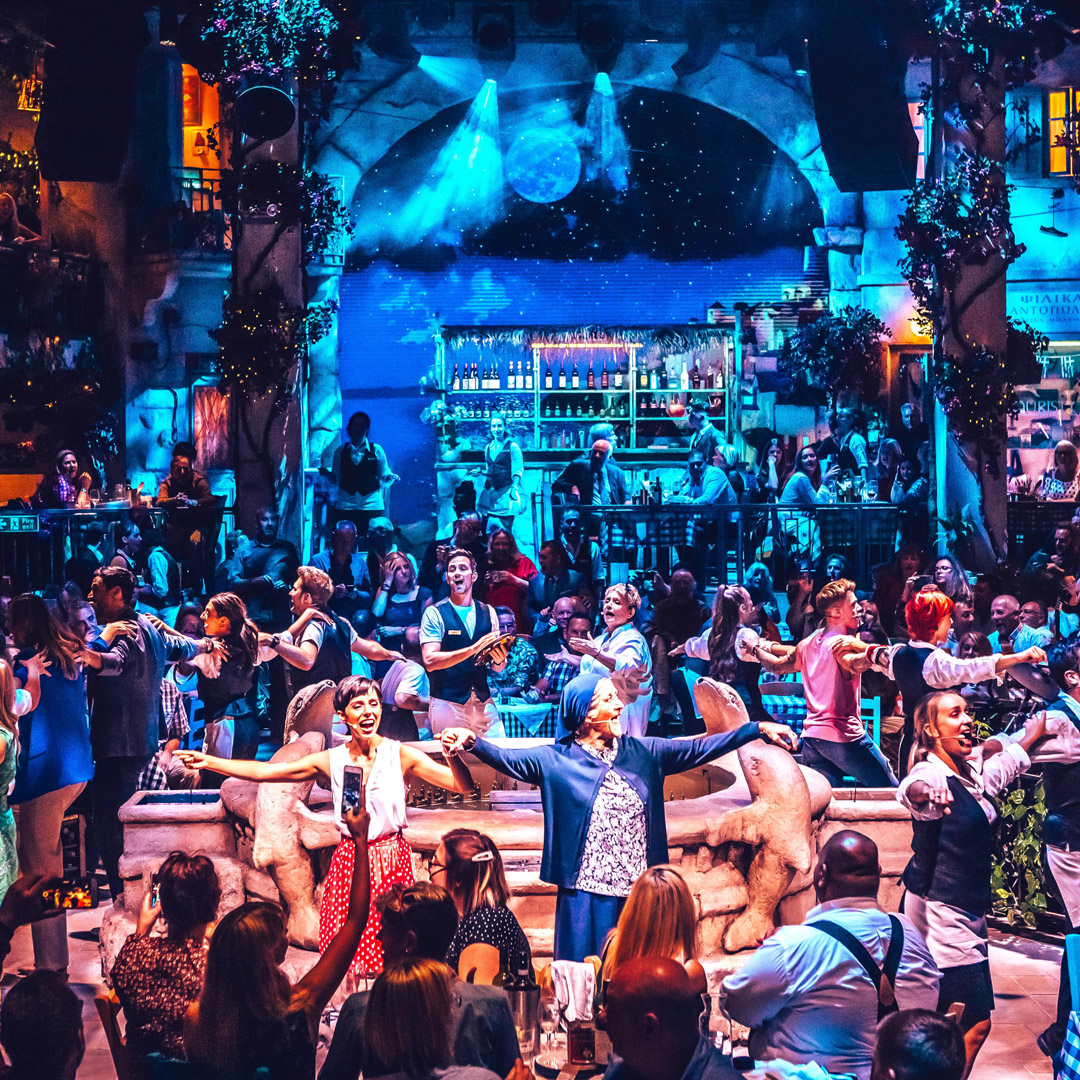
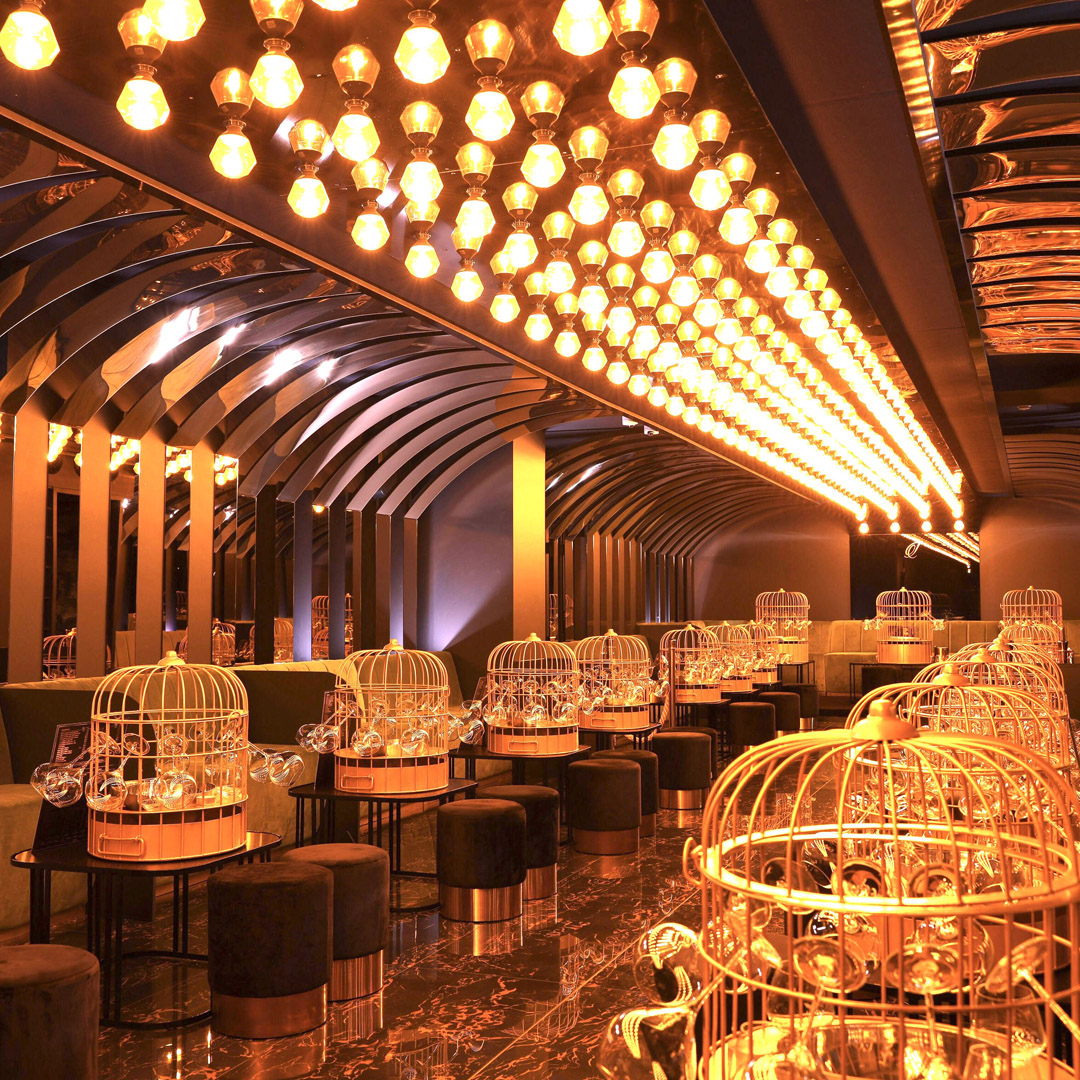
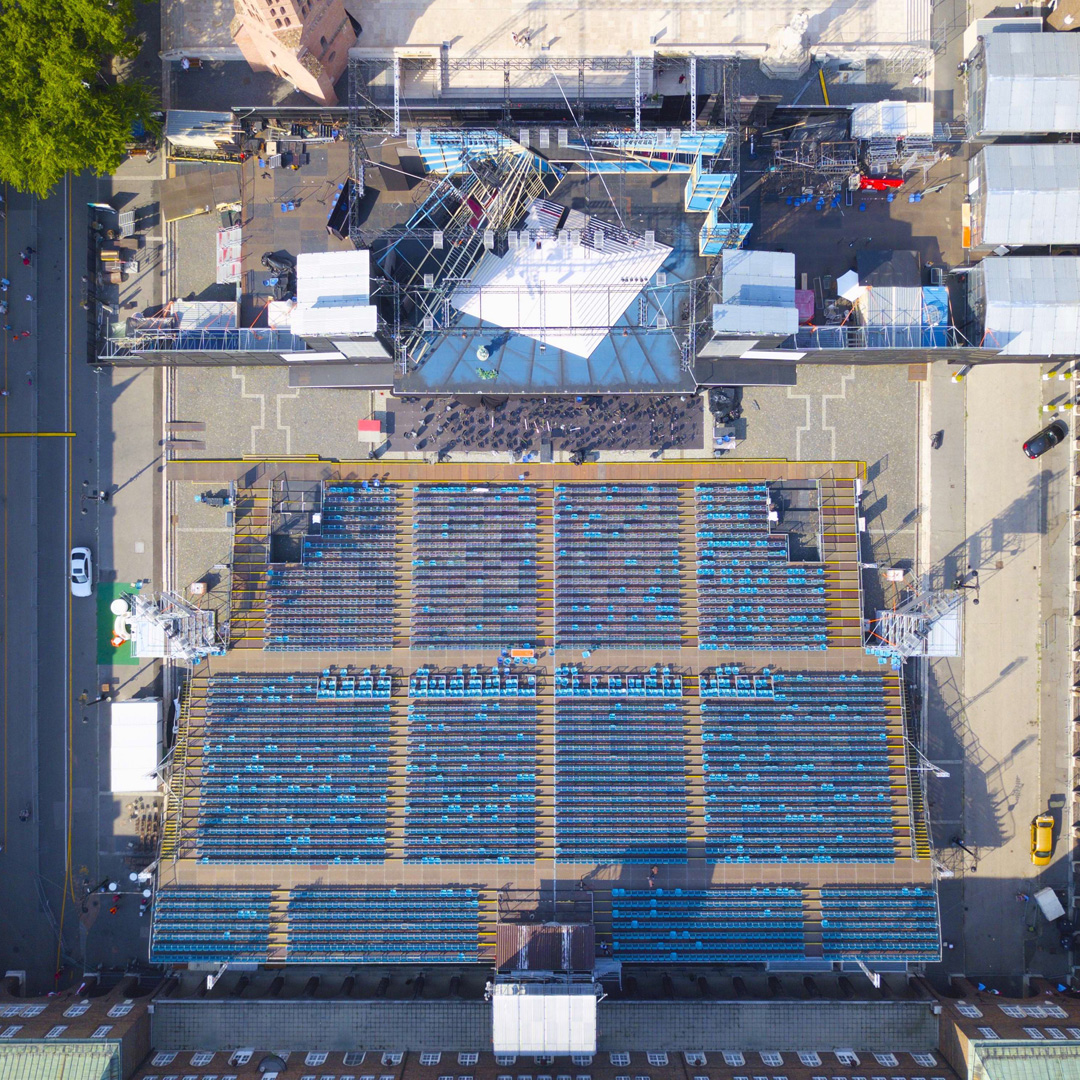
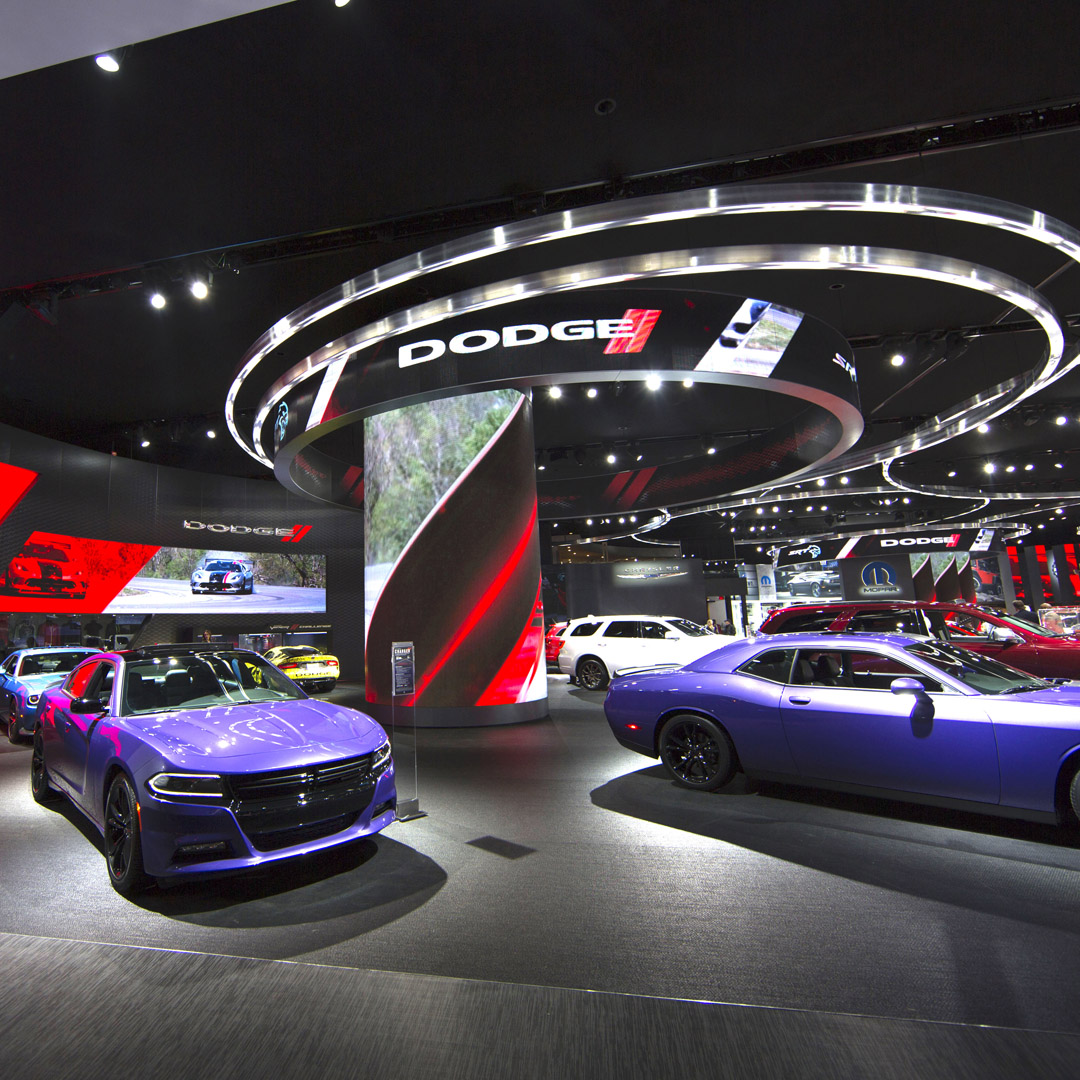
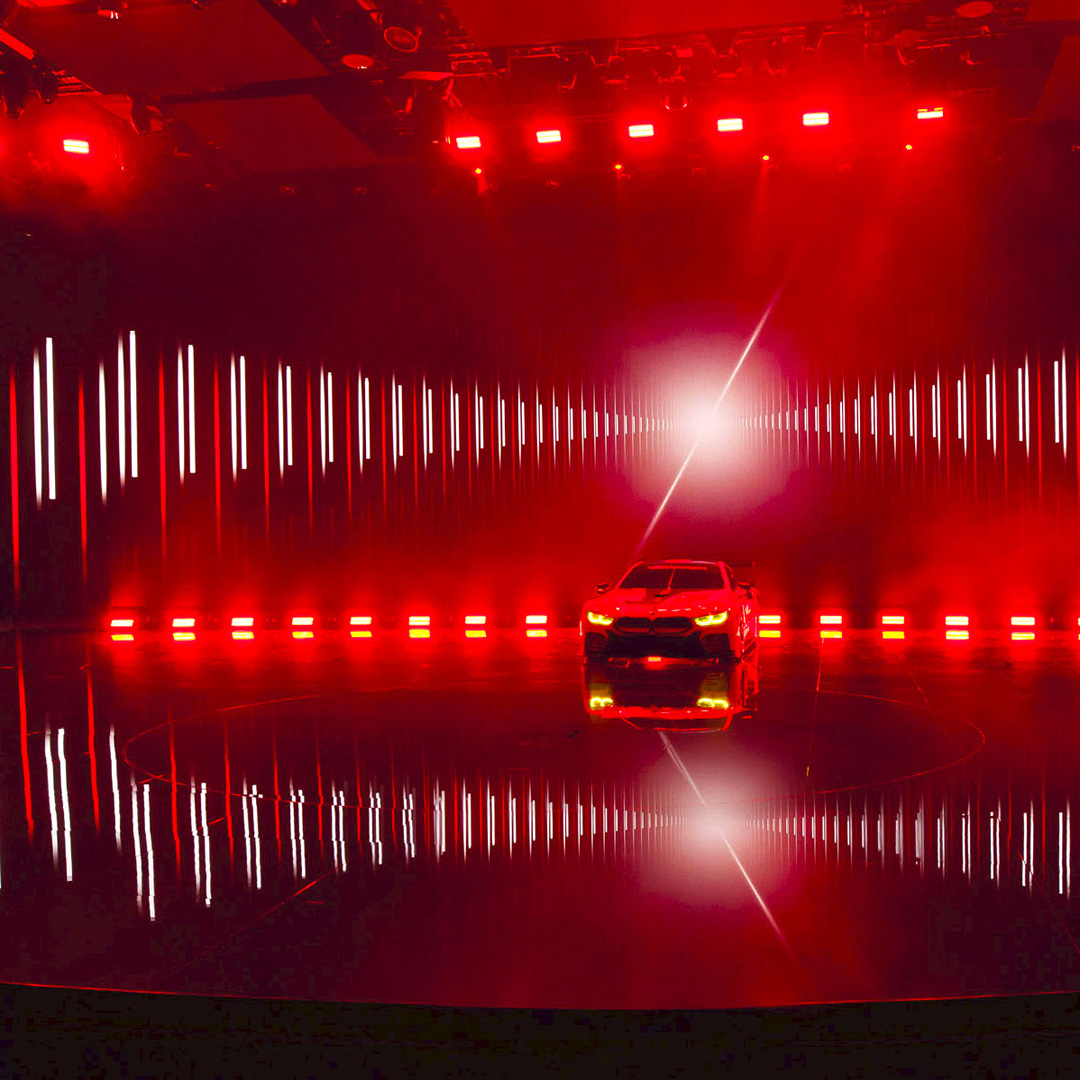
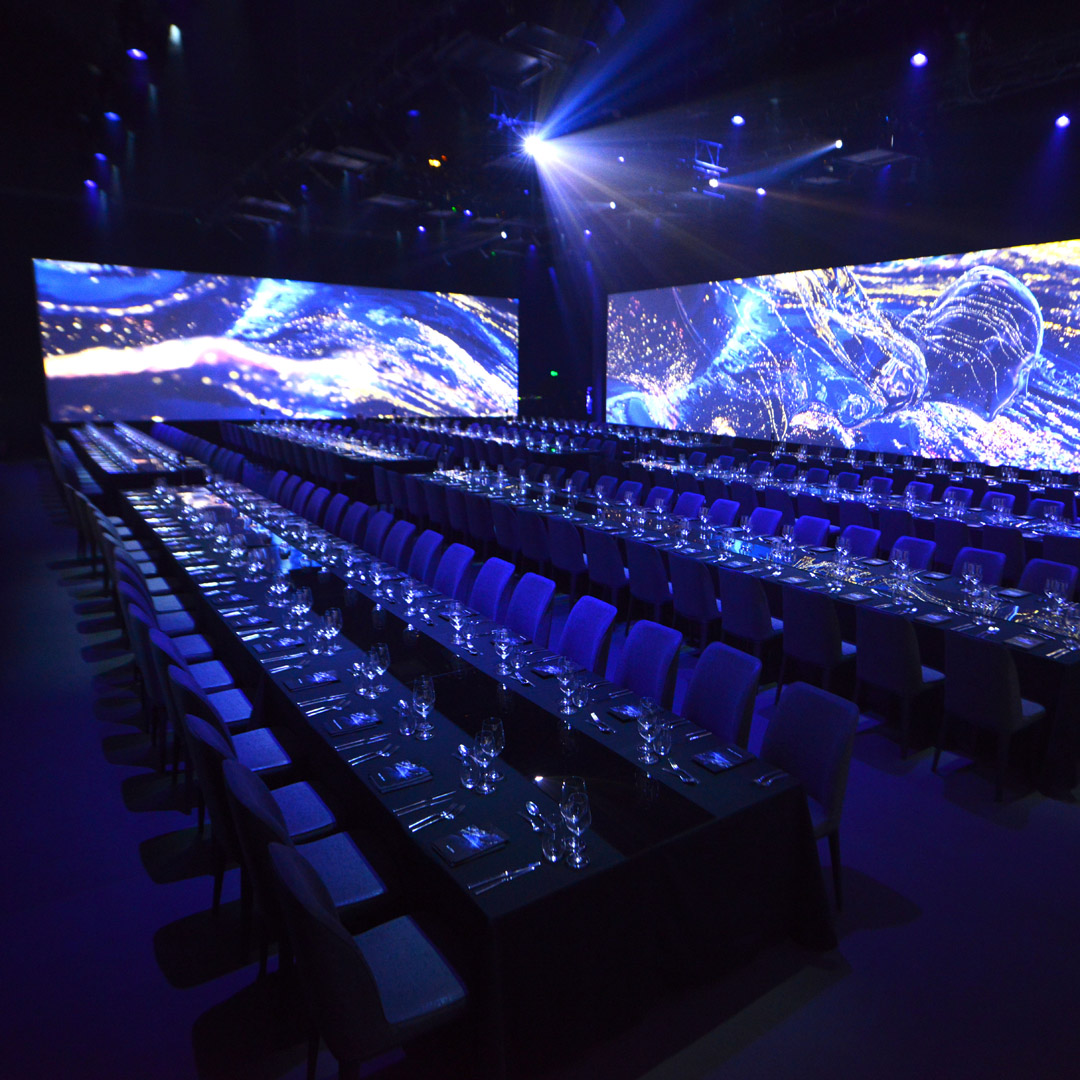
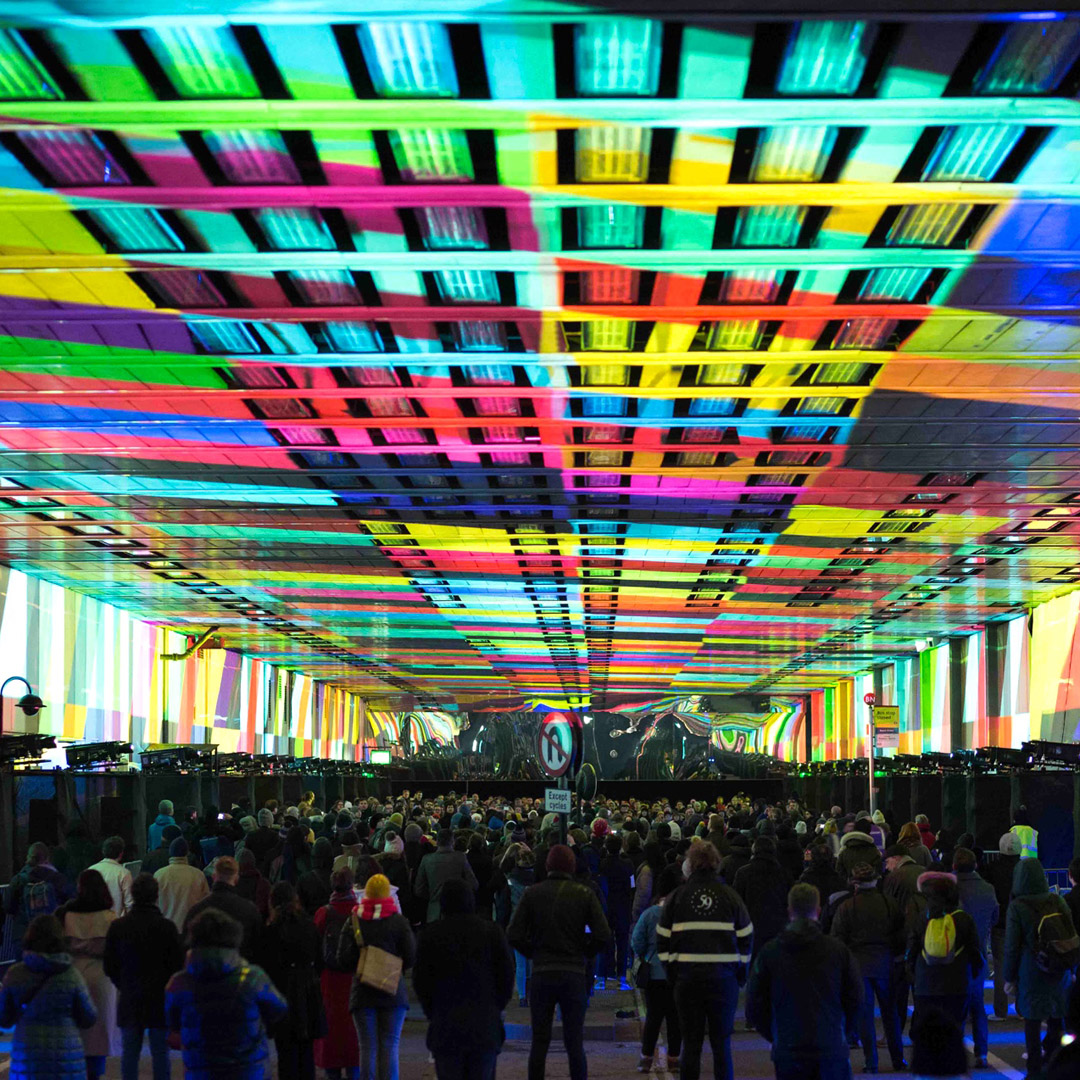

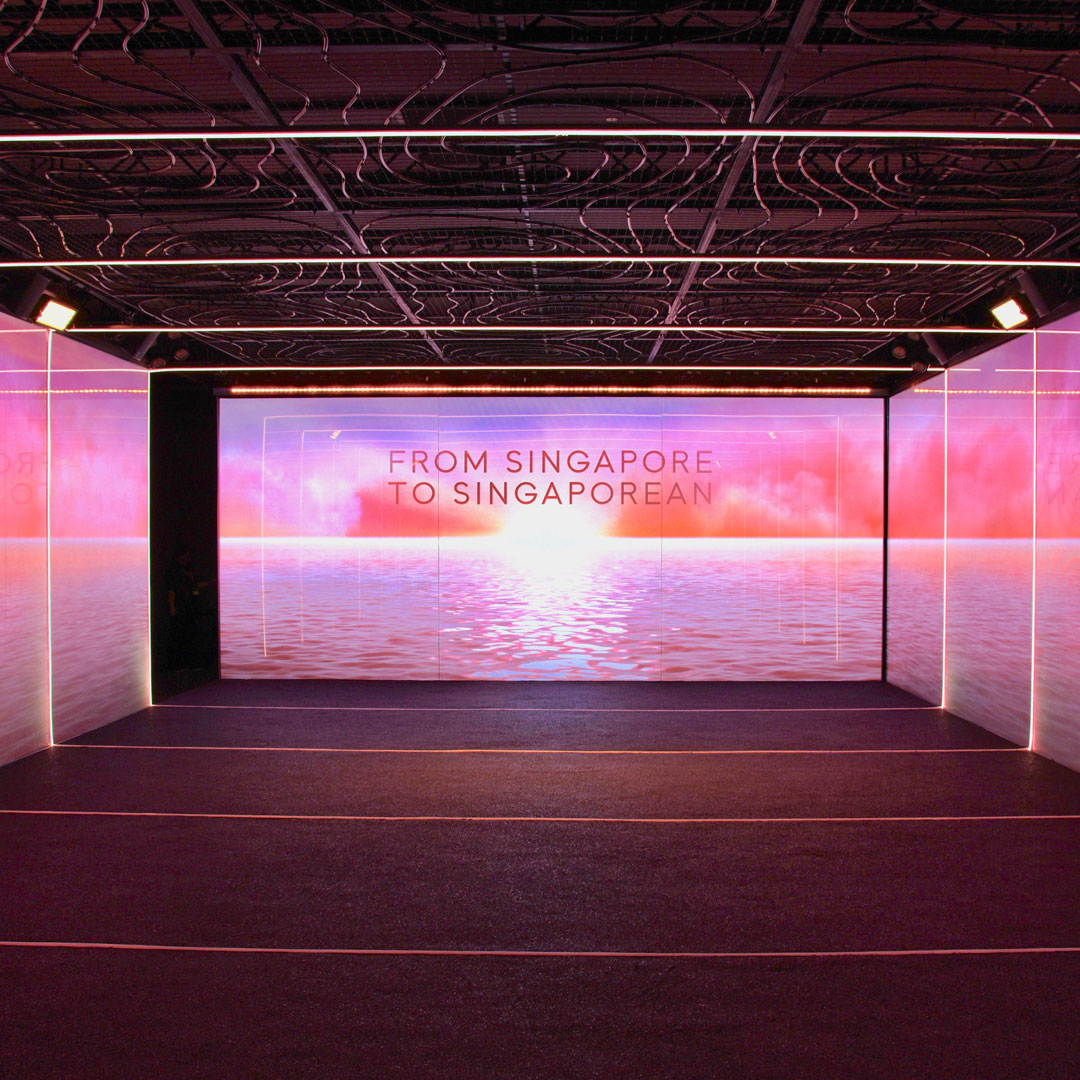
Do you have an upcoming event or project and need assistance on product selection? Or do you need expert advice? Drop us a note, we are ready to help.